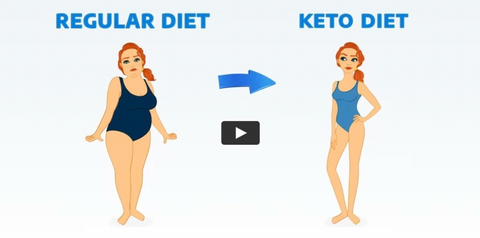
The Truth About Extreme Dieting: Why Moderation is Key to Sustainable Weight Loss
Share
Losing weight can be a challenging journey, and it's easy to fall into the trap of thinking that eating as little as possible is the best way to achieve your goals. After all, the less you eat, the more you'll lose, right? Unfortunately, that's not always the case. While extreme dieting may help you lose weight quickly, it's not a sustainable or healthy approach to weight loss. In this blog post, we'll explore the truth about extreme dieting and why moderation is key to sustainable weight loss.
What is Extreme Dieting?
Extreme dieting is a term used to describe any diet that severely restricts calories, nutrients, or entire food groups. Some examples of extreme diets include:
- Very low calorie diets (VLCDs): Diets that restrict calories to 800 or fewer calories per day
- Fad diets: Diets that promote rapid weight loss through extreme calorie restriction or the elimination of entire food groups
- Detox diets: Diets that claim to rid the body of toxins through the consumption of only certain foods or liquids
- Juice cleanses: Diets that involve drinking only fruit or vegetable juices for several days or weeks
Why Extreme Dieting Doesn't Work
While extreme dieting may help you lose weight in the short term, it's not a sustainable or healthy approach to weight loss. Here are some of the reasons why:
- Slows down your metabolism: When you eat too few calories, your body goes into starvation mode and slows down your metabolism to conserve energy. This means that you'll burn fewer calories throughout the day, making it harder to lose weight.
- Loss of muscle mass: Extreme dieting can cause your body to break down muscle for energy, which can lead to a loss of muscle mass. This can slow down your metabolism even further and make it harder to maintain your weight loss.
- Nutrient deficiencies: Many extreme diets restrict entire food groups, which can lead to nutrient deficiencies. For example, a low-carb diet may lead to a lack of fiber and certain vitamins and minerals found in fruits and grains.
- Binge eating: Extreme dieting can lead to feelings of deprivation, which can trigger binge eating episodes. This can undo any weight loss progress you've made and lead to a cycle of extreme dieting and binge eating.
Why Moderation is Key to Sustainable Weight Loss
So if extreme dieting doesn't work, what does? The key to sustainable weight loss is moderation. Here are some tips for adopting a moderate approach to weight loss:
- Focus on whole, nutrient-dense foods: Instead of restricting entire food groups, focus on eating a variety of whole, nutrient-dense foods. This includes fruits, vegetables, lean protein, whole grains, and healthy fats.
- Portion control: Pay attention to portion sizes and aim to eat until you're satisfied, not stuffed. Use smaller plates, bowls, and utensils to help you control your portions.
- Practice mindful eating: Eating mindfully means paying attention to your body's hunger and fullness cues, and eating slowly and without distractions. This can help you avoid overeating and make more mindful food choices.
- Be flexible: Allow yourself to indulge in your favorite foods in moderation. This can help you avoid feelings of deprivation and make your weight loss journey more sustainable.
In conclusion, extreme dieting may seem like a quick fix for weight loss, but it's not sustainable or healthy in the long run. Adopting a moderate approach to weight loss, focusing on whole, nutrient-dense foods, portion control, mindful
Would You Like to Know Exactly What to Eat to Lose Fat and Get Healthy Without Giving Up Your Favorite Foods or Starving Yourself? Watch this short video presentation to learn how:

